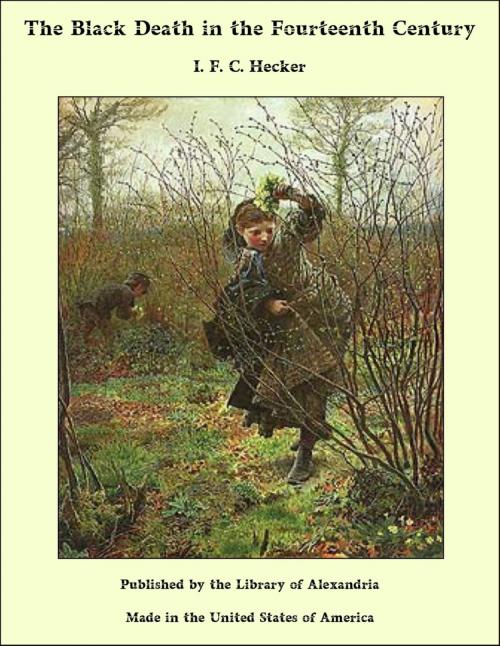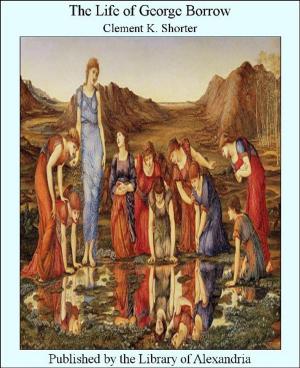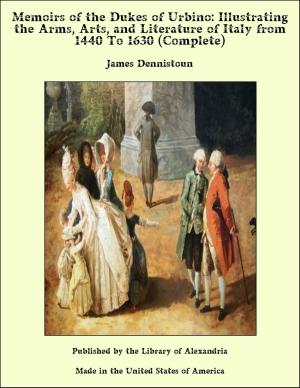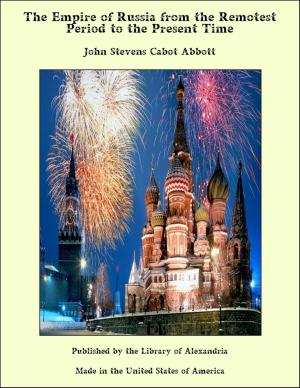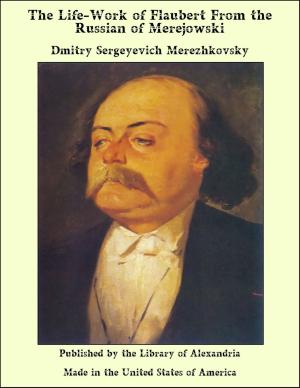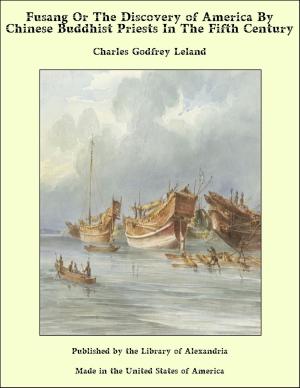The Black Death in the Fourteenth Century
Nonfiction, Religion & Spirituality, New Age, History, Fiction & Literature| Author: | I. F. C. Hecker | ISBN: | 9781465609175 |
| Publisher: | Library of Alexandria | Publication: | March 8, 2015 |
| Imprint: | Language: | English |
| Author: | I. F. C. Hecker |
| ISBN: | 9781465609175 |
| Publisher: | Library of Alexandria |
| Publication: | March 8, 2015 |
| Imprint: | |
| Language: | English |
We here find an important page of the history of the world laid open to our view. It treats of a convulsion of the human race, unequalled in violence and extent. It speaks of incredible disasters, of despair and unbridled demoniacal passions. It shews us the abyss of general licentiousness, in consequence of an universal pestilence, which extended from China to Iceland and Greenland. The inducement to unveil this image of an age, long since gone by, is evident. A new pestilence has attained almost an equal extent, and though less formidable, has partly produced, partly indicated, similar phenomena. Its causes and its diffusion over Asia and Europe, call on us to take a comprehensive view of it, because it leads to an insight into the organism of the world, in which the sum of organic life is subject to the great powers of Nature. Now, human knowledge is not yet sufficiently advanced, to discover the connexion between the processes which occur above, and those which occur below, the surface of the earth, or even fully to explore the laws of nature, an acquaintance with which would be required, far less to apply them to great phenomena, in which one spring sets a thousand others in motion. On this side, therefore, such a point of view is not to be found, if we would not lose ourselves in the wilderness of conjectures, of which the world is already too full: but it may be found in the ample and productive field of historical research. History—that mirror of human life in all its bearings, offers, even for general pestilences, an inexhaustible, though scarcely explored, mine of facts; here too it asserts its dignity, as the philosophy of reality delighting in truth. It is conformable to its spirit to conceive general pestilences as events affecting the whole world, to explain their occurrences by the comparison of what is similar, by which the facts speak for themselves, because they appear to have proceeded from the higher laws which govern the progression of the existence of mankind. A cosmical origin and convulsive excitement, productive of the most important consequences among the nations subject to them, are the most striking features to which history points in all general pestilences. The latter, however, assume very different forms, as well in their attacks on the general organism, as in their diffusion; and in this respect a development from form to form, in the course of centuries, is manifest, so that the history of the world is divided into grand periods in which positively defined pestilences prevailed. As far as our chronicles extend, more or less certain information can be obtained respecting them. But this part of medical history, which has such a manifold and powerful influence over the history of the world, is yet in its infancy. For the honor of that science which should everywhere guide the actions of mankind, we are induced to express a wish, that it may find room to flourish amidst the rank vegetation with which the field of German medical science is unhappily encumbered.
We here find an important page of the history of the world laid open to our view. It treats of a convulsion of the human race, unequalled in violence and extent. It speaks of incredible disasters, of despair and unbridled demoniacal passions. It shews us the abyss of general licentiousness, in consequence of an universal pestilence, which extended from China to Iceland and Greenland. The inducement to unveil this image of an age, long since gone by, is evident. A new pestilence has attained almost an equal extent, and though less formidable, has partly produced, partly indicated, similar phenomena. Its causes and its diffusion over Asia and Europe, call on us to take a comprehensive view of it, because it leads to an insight into the organism of the world, in which the sum of organic life is subject to the great powers of Nature. Now, human knowledge is not yet sufficiently advanced, to discover the connexion between the processes which occur above, and those which occur below, the surface of the earth, or even fully to explore the laws of nature, an acquaintance with which would be required, far less to apply them to great phenomena, in which one spring sets a thousand others in motion. On this side, therefore, such a point of view is not to be found, if we would not lose ourselves in the wilderness of conjectures, of which the world is already too full: but it may be found in the ample and productive field of historical research. History—that mirror of human life in all its bearings, offers, even for general pestilences, an inexhaustible, though scarcely explored, mine of facts; here too it asserts its dignity, as the philosophy of reality delighting in truth. It is conformable to its spirit to conceive general pestilences as events affecting the whole world, to explain their occurrences by the comparison of what is similar, by which the facts speak for themselves, because they appear to have proceeded from the higher laws which govern the progression of the existence of mankind. A cosmical origin and convulsive excitement, productive of the most important consequences among the nations subject to them, are the most striking features to which history points in all general pestilences. The latter, however, assume very different forms, as well in their attacks on the general organism, as in their diffusion; and in this respect a development from form to form, in the course of centuries, is manifest, so that the history of the world is divided into grand periods in which positively defined pestilences prevailed. As far as our chronicles extend, more or less certain information can be obtained respecting them. But this part of medical history, which has such a manifold and powerful influence over the history of the world, is yet in its infancy. For the honor of that science which should everywhere guide the actions of mankind, we are induced to express a wish, that it may find room to flourish amidst the rank vegetation with which the field of German medical science is unhappily encumbered.
